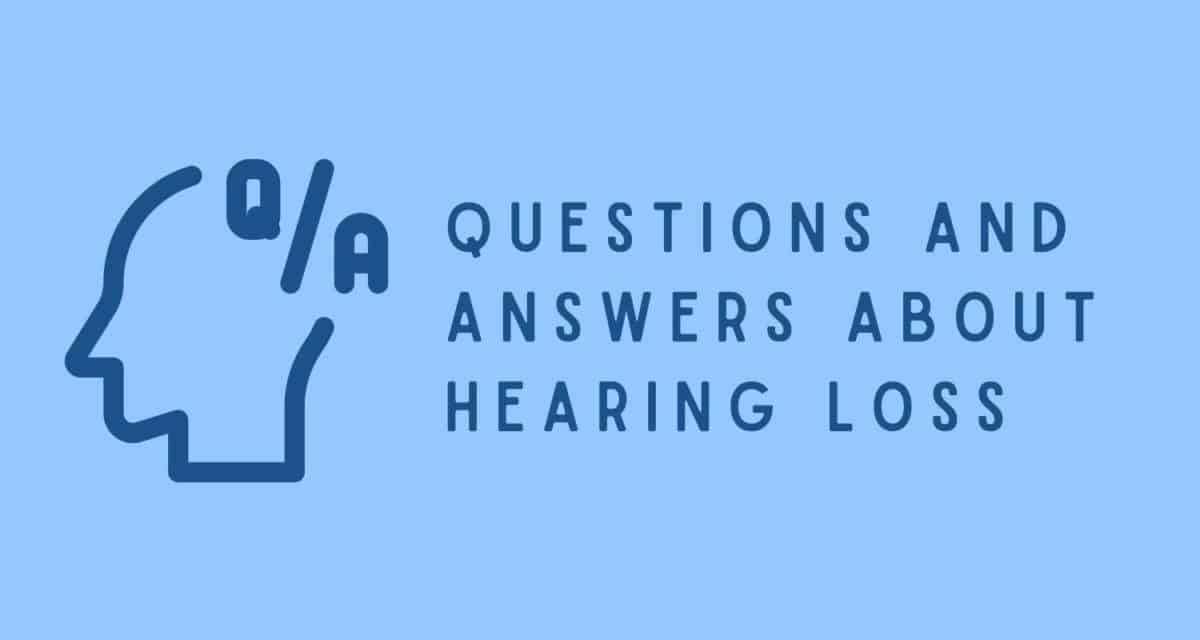- Volunteering for Hearing Health Causes - May 27, 2025
- Questions to Ask During Your Hearing Health Appointment - May 16, 2025
- Exploring Alternative Therapies for Hearing Loss - May 6, 2025
Hearing loss can affect almost every aspect of your life, including the ability to communicate comfortably with loved ones and friends, travel independently via public transportation, and even perform at work. If you cannot hear well enough, it can seem like the rest of the world speaks a foreign language.
It’s difficult to ask questions concerning hearing loss, and there are a few you’re hesitant to ask. When it comes to your hearing health, we think there are no silly questions, and you should ask as many as you need to get a complete picture of your situation.
Here are some frequently asked questions and answers about hearing loss to put your mind at ease.
Is it necessary for me to wear two hearing aids?
Hearing loss affects your ears differently, in the same way, that you have somewhat varying prescriptions in the two lenses of your eyeglasses. You might believe that one ear has a worse hearing loss than the other. However, it is a misconception to believe that you have one “good” ear and one “poor” ear. Your good ear may appear to be hearing well compared to your bad ear. However, 90 percent of people with hearing loss have hearing loss in both ears.
The fact that your brain needs auditory data from both ears to make sense of the world around you is one of the reasons why having two hearing aids is vital. You can determine where sounds in the surroundings originate from when you hear with both ears, and you’ll have complete knowledge about your location. Wearing gadgets in both ears will help you hear better and lessen listening strain. You’ll have more energy and won’t have to be concerned about your hearing.
Another reason to utilize two hearing aids is that your ears are responsible for distinct types of hearing. The two halves of the brain interpret information differently, with one being more rational and the other being more emotional. The ears work similarly, with the left ear being more sensitive to certain sounds such as music, and the right ear is better at hearing speech. If you treat your hearing loss in both ears, you’ll be able to appreciate all of the noises around you completely.
Will my hearing loss progress to the point where I become deaf?
While your hearing will decline, hearing health professionals agree that you will never be entirely deaf. If you have sensorineural hearing loss, which is hearing loss caused by damage to the cells in the inner ear, your hearing loss will worsen for a while before stabilizing. If you have conductive hearing loss or hearing loss caused by damage to the middle ear, a ruptured eardrum can cause abrupt and severe hearing loss or even deafness.
One method to keep your hearing health from deteriorating further is to seek treatment as soon as possible and invest in hearing aids. Without training, your hearing will deteriorate, just like any other untrained muscle, and if you can’t hear, your auditory system will begin to atrophy. Untreated hearing loss can lead to severe cognitive deterioration and possibly brain atrophy. If you suffer hearing loss, wearing the hearing aids that your hearing health professional recommends will preserve your brain while protecting your hearing.
Is it possible to use a natural treatment for hearing loss?
Unfortunately, there are no natural cures for hearing loss. Injury to the cells of the middle ear or inner ear and damage to the auditory nerve or auditory centers in the brain causes hearing loss. Hearing loss has no natural cure because these cells can’t be restored or regenerated after being damaged.
Protecting yourself from frequent causes of hearing loss, such as overly loud noise, infections, injuries, or ototoxic drugs, is the best thing you can do. Wear ear protection if you are exposed to potentially harmful sounds. By resisting the urge to put anything in your ears, you can protect your middle ear. They’re self-cleaning, so put down the Q-tips and make an appointment with your doctor if you think they’ve grown clogged with earwax.
Treating Hearing Loss
Do you have any other questions concerning your hearing health that haven’t been addressed here? Contact us today to learn more about our comprehensive hearing health offerings. We’ll make sure you have all the information you need to make an informed decision about your treatment options.

